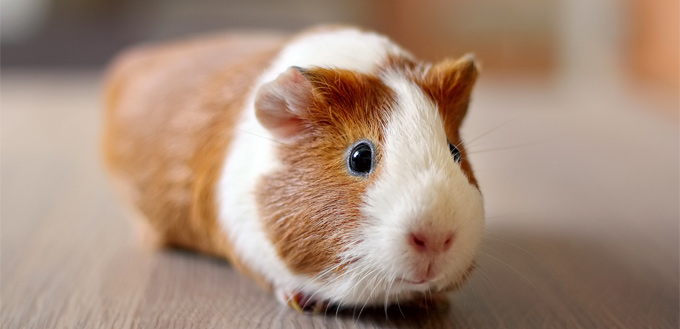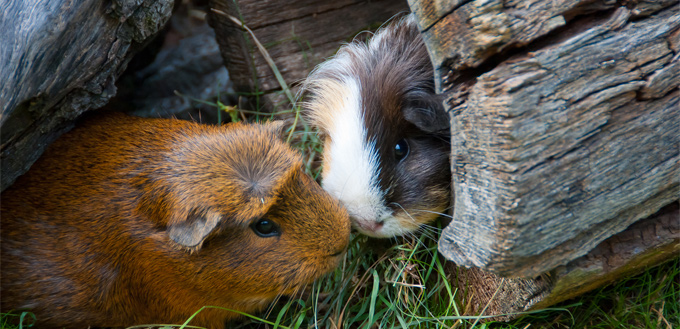It is natural for pet owners to want to know how long their respective pets are going to live. This is to help them better care for their pets, perhaps even to the point of extending their pet’s lifespan for a few more years. Unfortunately, pets, like humans, do not have a definite expiration date. They don’t come in tags with the ‘best before’ date. They don’t even come with the ‘valid until’ tag. We can always come up with a number, but it is not always a guarantee that your pet Guinea pig is going to reach that number. Let’s find out more.

The Guinea Pig Lifespan and Aging Process
There are also guinea pigs in the wild. However, they are generally not the same as those we have as pets. In their native environment, these animals can live up to 4 years, the majority of them barely reaching their first year. This is understandable since living in the wild is fraught with risks and dangers.
Being small animals, guinea pigs are prey animals. Coyotes, owls, wolves, and snakes are their principal predators. If they venture into human settlements, feral guinea pigs can also come face to face with domestic cats. Of course, humans are always predators. Some cultures hunt feral guinea pigs for food. Add to this the scarcity of food plus exposure to the elements and you will realize that the wild brothers and sisters of our caged furry pals don’t really have that much of a chance at a long life.
Pet guinea pigs may be caged or placed in a confined space, they lead generally longer lives. On the average, these furry creatures can live anywhere between 4 years and 8 years, often depending on a number of factors which we will be discussing in the succeeding sections. If all of these factors are favorable for the little critter, a guinea pig can live a lot longer than some dogs. The oldest guinea pig on the Guinness World Record is Snowball having reached the ‘overripe’ age of 14 years and 10.5 months. This little fella’ went to the other world in February of 1979.
Given that guinea pigs have a relatively shorter lifespan compared to humans as well as other pets, it would be quite impossible to determine their exact developmental age. This is different from chronological age. Sure, your guinea pig is already 5 years old, but what does it really mean?
Its feet often give a clue as to the age of your guinea pig. Once its outside toe starts to curl or roll towards its ‘sole’, it’s often a sign that it is already starting to age. The toe next to it follows until the largest toe curls. That means your guinea pig is already a granny or a grandpa.

The Breed Factor
Nobody knows why, but hairless breeds of guinea pigs have a slightly longer lifespan than their haired brethren, especially the long-haired ones. For instance, the Skinny Pig can live up to 14 years, although they average at 7 to 8 years. On the other hand, haired breeds typically have a slightly shorter lifespan with the shortest being the Texel, American, Cuy, and Teddy at a lower limit of 4 years.
Here’s a rundown of the average lifespan of the different breeds of guinea pigs.
- Abyssinian guinea pig – 5 to 7 years
- American guinea pig – 4 to 8 years
- Cuy guinea pigs – 4 to 8 years
- Himalayan guinea pig – 5 to 8 years
- Peruvian guinea pig – 5 to 8 years
- Sheltie guinea pigs – 5 to 8 years
- Silkie guinea pig – 5 to 8 years
- Skinny guinea pig – 7 to 8 years
- Teddy guinea pig – 4 to 5 years, although they can reach 7 years
- Texel guinea pig – 4 to 7 years
- White-crested guinea pig – 5 to 8 years
Again, it is important to understand that these numbers are nothing more than just that, numbers. How you care for your pet guinea pig will have an impact on its true lifespan. As we already shared with you, Snowball reached the age of almost 15 years.
The Impact of Diet and Nutrition
One of the things that can greatly impact your guinea pig’s lifespan is its diet. Like any other pet, guinea pigs require the right diet that is specific for their developmental or life stage. For instance, calcium-rich alfalfa-based pellets are great for pregnant and juvenile guinea pigs. However, if you give this kind of food to a normal, healthy adult guinea pig then there’s a fair chance that health issues may develop. It is for this reason that orchard grass or timothy hay is best for healthy adult cavies.
Guinea pigs cannot produce vitamin C so this should always be included in their diet. Lettuce and carrots are rich in vitamin C. These can be given to your pet occasionally, not on a daily basis since these can also cause tummy problems. You can ask your vet if it’s possible to give your guinea pig vitamin C pills. Just don’t mix this in your pet’s water.
High-quality, fresh hay, and grass are still the best food for your guinea pig. Giving them other safe foods occasionally can help prolong their life.
Other Factors to Consider
There are other things that can affect the lifespan of your pet. For example, its cage should be spacious enough to allow it to exercise. Guinea pigs love to run and even burrow. Having a house or cage that allow for such natural activities can greatly contribute to your pet’s overall well-being.
Related Post: Best Guinea Pig Cages
The same is true with keeping its cage clean and free of germs. They are very small and can be easily affected by bacteria, fungi, and even viruses. Cleaning their cage on a more frequent, regular basis can help make sure that they are healthy and reach their maximum lifespan.
You should also be very vigilant of your pet’s behavior and bodily changes. Weight loss, difficulty breathing, weakness or lethargy, noisy breathing, sneezing, diarrhea, or even the presence of blood in their urine will always indicate a health problem. You should always look for signs in your pet that something is amiss. This should make you bring your guinea pig to the vet for more accurate determination of the problem and its eventual treatment.
Taking good care of your guinea pig is the key to ensuring they live long.







